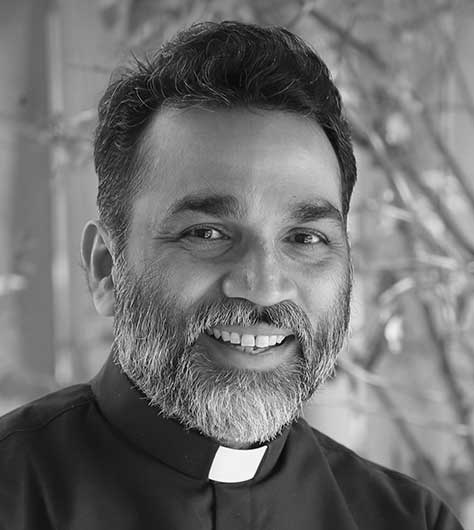Trending Articles
Let’s Rebuild the Spiritual Walls
Building a strong wall was a key point of discussion during the last presidential election in the United States of America, with one side unwavering in their stance for building a border wall between Mexico and the United States in order to thwart illegal immigration.
The whole discussion of walls made me reflect on the urgency of rebuilding the spiritual walls in our society. Losing the idea of sacredness, dignity of human life, and the value of family has led us to a secular neo-pagan culture. Walls between good and evil, sacred and secular, God and mammon, intrinsically valuable and instrumentally valuable are broken. Moral walls are terribly slackened, more than ever before. The spiritual walls in the U.S. have nearly crumbled, leaving but a stony trace of a fortress that once upheld the nation’s founding ideals. The Founding Fathers emphasized that the constitutional republic depended upon a vigorous religious society: “Our Constitution was made only for a moral and religious people,” said John Adams. “It is wholly inadequate to the government of any other.” Our age-old value based foundations are weakened by the principalities of radical secularism and value degradation.
As He did in Nehemiah’s day, the Lord might extend His mercy to rebuild those walls. This could be realized only to a repenting, praying, and testifying people. When the Prophet Nehemiah surveyed Jerusalem, he saw the ruins of a city destroyed by the Babylonians. Just as Jerusalem was in physical ruins, our world continues on a path of spiritual ruin. What can we learn from Nehemiah and the rebuilding of the wall of Jerusalem? What steps should we be taking to rebuild our nations? There are three steps Nehemiah took to rebuild the walls that had crumbled after the invasion.
First, he began with prayer, fasting, and mourning. Nehemiah prayed for himself, he prayed for his nation, and he even confessed the sins of the forefathers who had brought destruction to Jerusalem. The burden he had for his city was very clear. Rebuilding the walls was a physical project. Yet at the end of the day, it was only God who could complete it. Nehemiah was a desperate man seeking the Lord.
Are you desperate when you see the Church largely quit the practice of consistent, deep, pleading community prayer? Do not let the immensity of the needs of the Church paralyze you so that you do not do anything. God wants us to feel others’ burdens, but then He wants us to roll that burden back to Him, remembering that it is not our power, but His power that redeems. In thirteen chapters, Nehemiah says “I prayed to the Lord” eleven times.
Secondly, Nehemiah invited other people to join him. He said, “Let’s rise up and build the wall” (2:18). God must have shared His burden with many people. To find and gather them for a single goal is yet another step in building a wall of the Lord. Nehemiah had a good vision about what must be done and how people must be gathered for this purpose. A good vision will always be carried to fruition by people of good mind. We must be concerned about the things that God is concerned about.
The priests were the first to volunteer. The people of God, guided by the leaders of the Church, are to lead the way. We are the gatekeepers for the people whom God entrusts to us. Every believer has a unique role. The nation of Poland can never forget the name of Saint Faustina Kowalska. Among many great leaders in their country, she was a humble instrument in making modern Poland a God-fearing one. She was an ordinary religious. However, she had a deep sorrow about the people in her country. She was not a politically or socially influential woman, but she had a zealous heart for the Lord, burden of her country, and a readiness to do whatever was required. Who can resist the wrath of God? Only a person with a humble heart who fears God. The Lord anointed Saint Faustina by revealing the great prayer of the Chaplet of Divine Mercy, which always shatters the works of evil powers.
Finally, opposition did not distract the Prophet Nehemiah from his mission. Get ready in facing oppositions from within and without if you want to do something unique for the Lord. The hostility you face from your inner circle, say for instance, from your family, friends and other members of the community, will be more painful than from enemies. You will find new tactics from the enemy who will try to put you down and withdraw you from the goal. If you have a Spirit-guided vision, no one can distract you from your journey. There will be oppositions and challenges, pains and sorrows, but if you know why others suffer, you know how they suffer.
We want God to come in great power to convert people, but the Bible stresses the need for personal evangelism. Our nations’ crumbling walls cannot be rebuilt until each Christian works as an authentic representative of Christ wherever He has planted him or her.
The vision of making spiritual walls get prolonged and delayed since Christians are found to be shy in witnessing the Lord in their areas of mission, and fear to raise their voices to fight against the warriors of the culture of death. Lovingly and winsomely, we must share the Gospel message through our lips and testify to its transformative power by our lives. Unless that happens, our nation’s spiritual walls will not be rebuilt.

Father Roy Palatty CMI is a priest of the congregation of the Carmelites of Mary Immaculate. He earned his Ph.D. in Philosophy from the Catholic University of Leuven in Belgium and is a published author of books and articles. Since 2014, he has been serving as Spiritual Director of Shalom Media, a Catholic media ministry based in South Texas. Shalom Media is home to SHALOM WORLD Catholic television network and publishes Shalom Tidings bi-monthly magazine. Father Varghese is a gifted speaker and has been an in-demand preacher around the world, leading numerous retreats for priests, religious, and lay people.
Latest Articles
Want to be in the loop?
Get the latest updates from Tidings!








